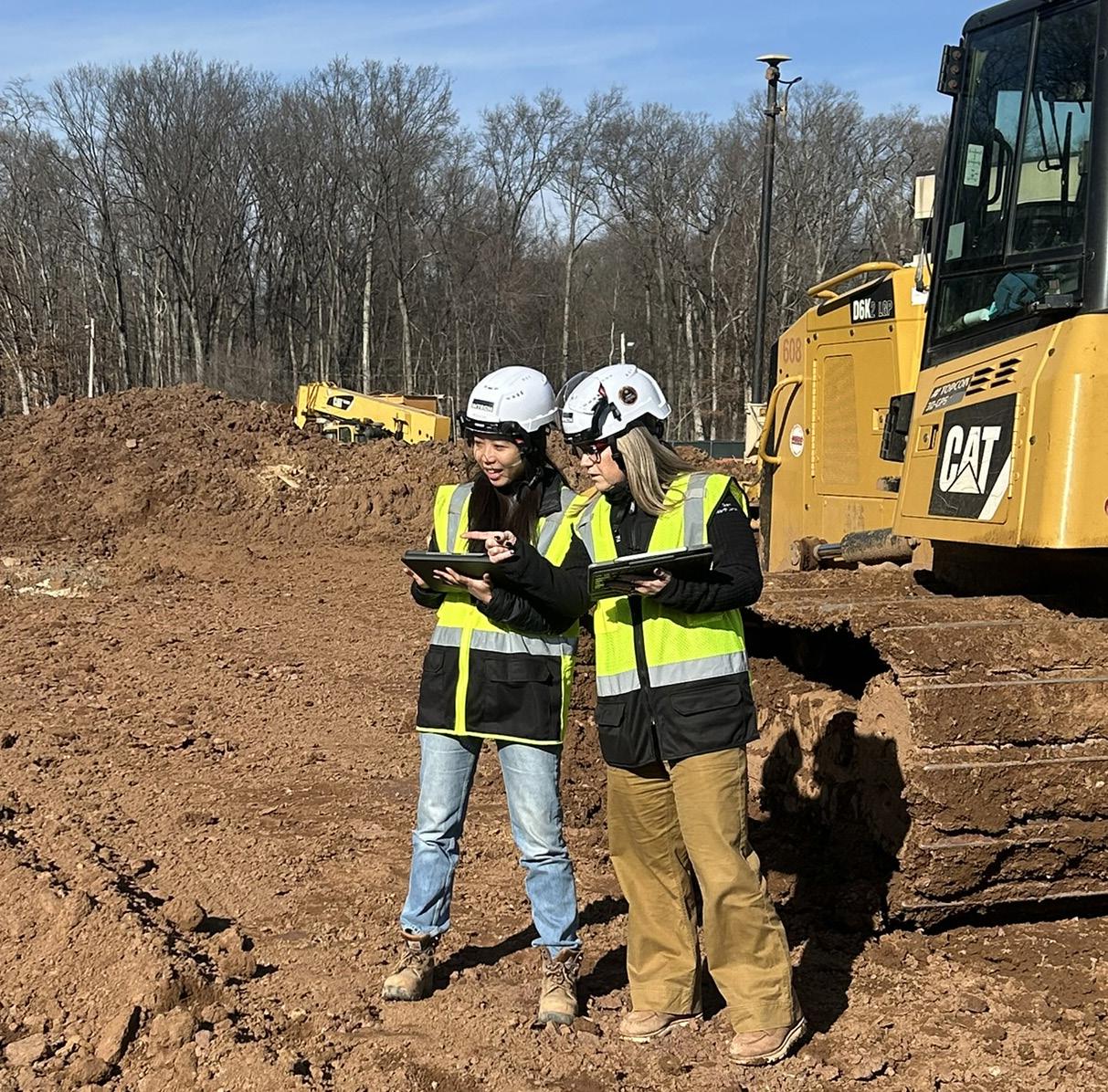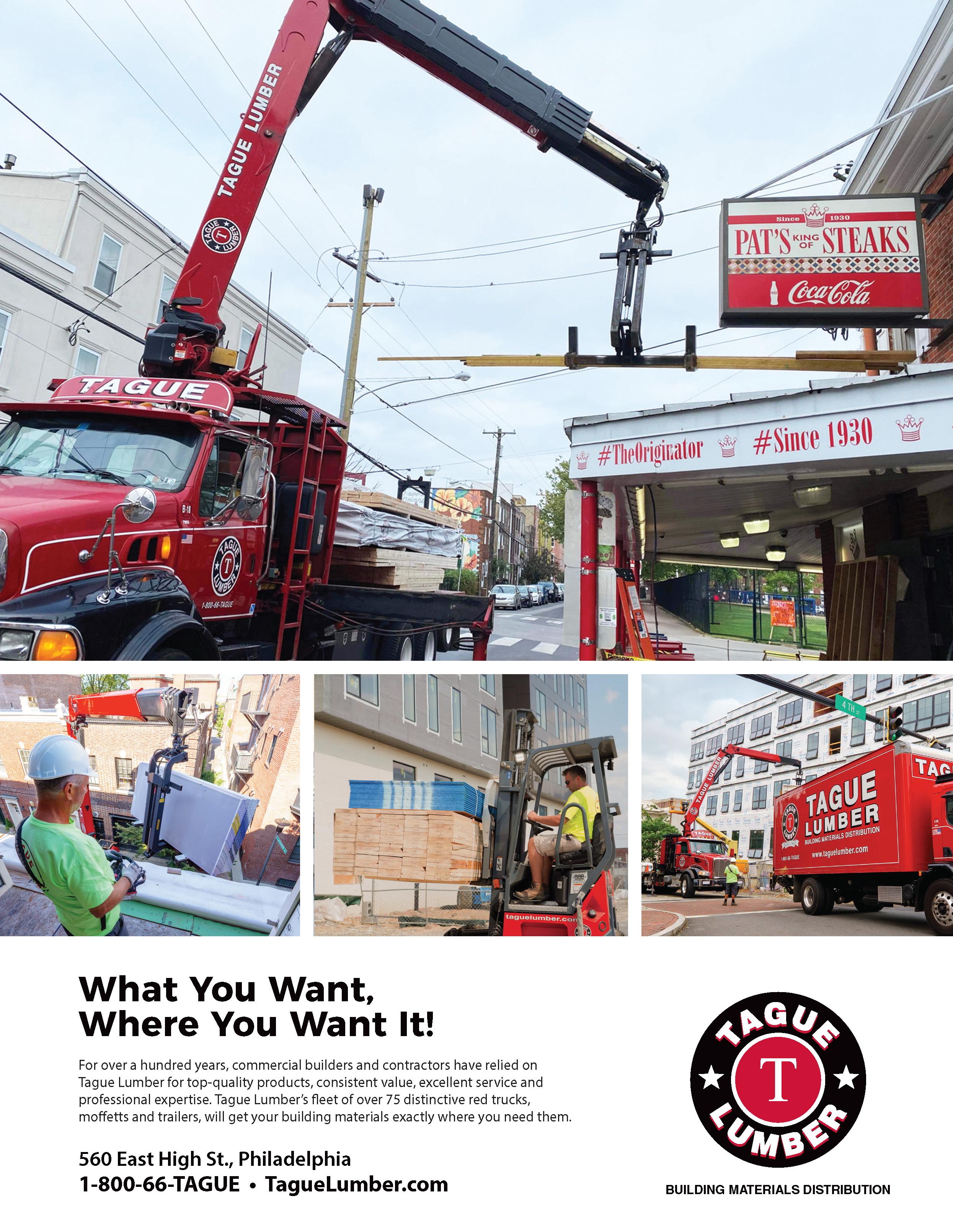
6 minute read
PERSPECTIVES ON CONSTRUCTION: Q&A WITH INTECH’S NEW ASSOCIATE PRINCIPALS
BY AMANDA GIBNEY WEKO | AGW COMMUNICATIONS
In January, INTECH Construction announced the promotions of Colleen Mills, LEED GA, and Philip Rinaldi, LEED GA, to Associate Principal. After beginning her career in architecture, Colleen joined INTECH as a senior project manager in 2018. She has since led over $100 million in commercial, hospitality, education, and multifamily residential projects. Phil is a third-generation construction professional who began his career in the building trades. He joined INTECH in 2015 and has led the renovations and interiors group since 2017. His leadership extends from estimating and budgeting to managing projects and personnel.
Given their different backgrounds and perspectives, GBCA asked for their input on the evolution of Philadelphia’s construction community – and how construction professionals can stay ahead in the everchanging industry.
How does your background inform your perspective and approach to construction management?
Colleen: My background in architecture gives me the keen ability to interpret drawings and maintain the design intent throughout the construction process. I credit mentors and past professors who empowered me with the tools to build a strong marriage between design awareness and constructability.
Phil: My hands-on perspective heavily influences my approach. I understand the challenges tradespeople face on-site, from scheduling conflicts to material delays, and I use that knowledge to create realistic project timelines and improve communication between field teams and management. It also helps me build strong relationships with subcontractors because I speak their language and respect their expertise.
What major changes have you seen in the industry since you began?
Colleen: When I was fresh in my career, we still used blueprints and paper submittals and shop drawings. Now, we are nearly paperless, utilizing software and BIM to facilitate more precise planning, collaboration, and coordination. Being able to walk the project site with all of the drawings, RFIs, and submittals at your fingertips via a tablet is priceless!
Phil: When I began, construction was much more hands-on with limited digital tools. Now, BIM, project management programs like Procore and PlanGrid, and advanced scheduling software have transformed how projects are planned and executed. These tools improve efficiency, reduce errors, and enhance team communication. Skilled labor shortages have become a bigger challenge.

How do you stay on top of industry trends?
Colleen: In addition to talking regularly with tradespeople to get a better understanding of how their systems come together, I stay involved with professional organizations such as GBCA, Commercial Real Estate Women (CREW) Greater Philadelphia, Professional Women in Construction (PWC), and the National Association of Women in Construction (NAWIC). The organizations offer events, networking, and continuing education. Who better to learn from than your colleagues?
Phil: I stay informed through a combination of technology and software training, networking and peer discussions, and onsite learning. Nothing beats hands-on experience. I stay in tune with field operations, learning from my teams and adapting best practices from one project to another. Real-world problem-solving keeps me ahead of trends.
Colleen, you’ve taught in Jefferson University’s construction management program since 2017. What’s the most important thing students need to learn to be effective construction managers?
Colleen: The key to success in this business is communication – everything else you can learn. You need to effectively communicate with so many different participants, from clients and design professionals to building inspectors and tradespeople. Relationships are built by communicating with others in our field.
Phil, you focus on interior fit-out work and renovations. How has that market evolved over recent years?
Phil: Office renovations emphasize adaptive, flexible spaces rather than traditional cubicle layouts. Companies are investing in collaborative areas and multi-use spaces. Sustainability is a major priority, with clients opting for energy efficient lighting and HVAC systems and pursuing certifications. There’s also a growing demand for highend interior design. Clients want unique, brand-driven aesthetics with premium finishes. Overall, the interior sector is more dynamic and innovation-driven than ever, requiring adaptability and a forward-thinking approach to meet client expectations.

How do you stay proactive – and help your clients be proactive – when it comes to mitigating construction risk?
Colleen: As I preach to my students at Jefferson: plan, plan, plan. Communication and comprehensive planning are keys to mitigating risk. We can’t anticipate every single issue on a project, but as long as we have processes in place that include a rigorous safety plan, regular meetings, frequent schedule updates, budget monitoring, subcontractor management, and a quality control program, we will have the required tools to navigate to the best outcome.
Phil: Before starting a project, I conduct a thorough risk assessment, evaluating factors like site conditions, permitting challenges, supply chain vulnerabilities, and labor availability. This helps us identify and address potential risks before they become costly problems. Many disputes arise from unclear contracts or poorly defined scopes of work. By drafting clear, detailed contracts that outline responsibilities, deliverables, and risk allocation, all stakeholders can fully understand scope and expectations. A proactive mindset allows for quick pivots without derailing the entire project.
Colleen and Phil put together a few recommendations for young professionals beginning their construction careers:
Be willing to learn and adapt. Construction is constantly evolving, with new materials, technologies, and safety standards. Stay curious, ask questions, and invest time in learning.
Master the fundamentals. Even if your goal is to move into management, learning the trades and understanding the hands-on work is invaluable. Knowing how things are built makes you a better problem-solver and a more respected leader.
Build strong relationships and communication skills. The industry runs on teamwork. Be professional, reliable, and open to collaboration and your reputation will follow you.
Develop a strong work ethic and attention to detail. Construction rewards those who show up, work hard, and pay attention. Small details – like reading plans correctly, double-checking measurements, and maintaining a safe site – can make or break a project.
Find a mentor and never stop growing. Learning from experienced professionals can accelerate your career. Seek out mentors who can guide you on site or through industry organizations. The more you learn, the faster you’ll advance.










